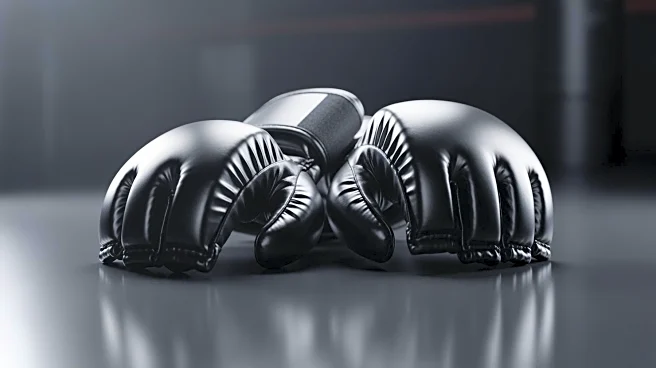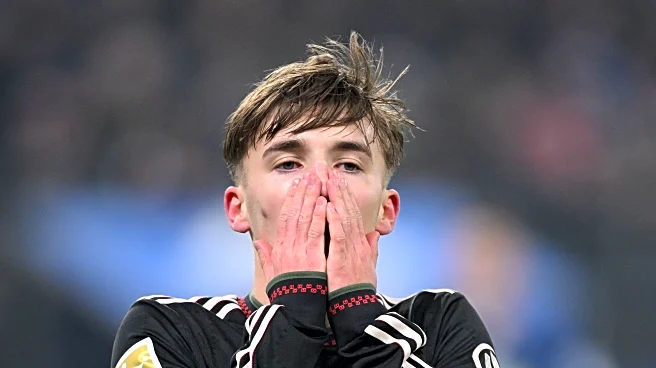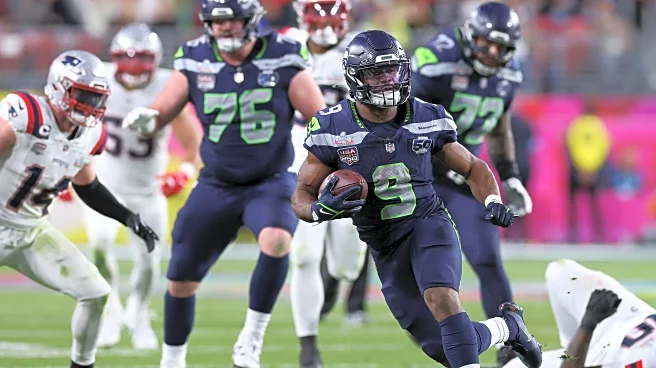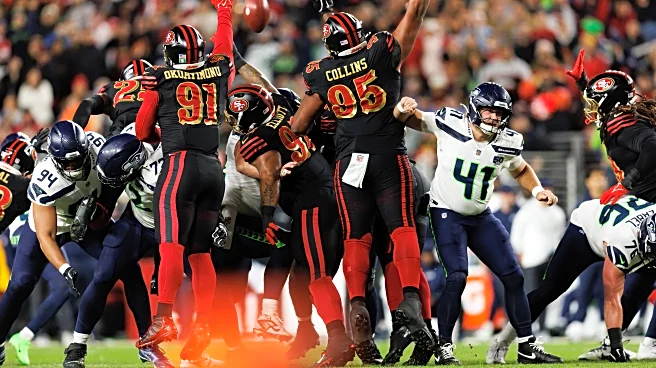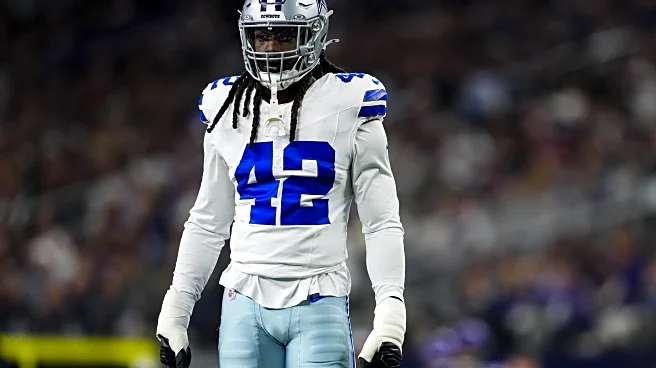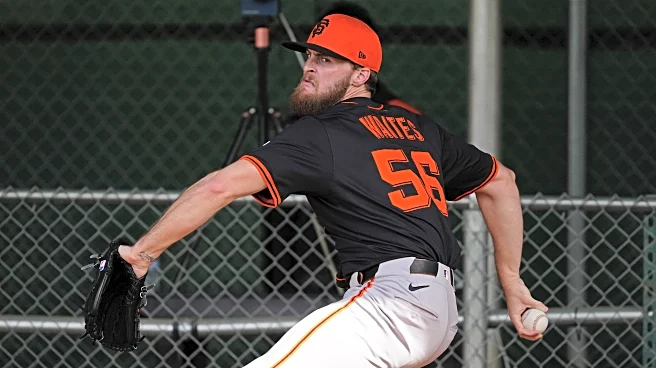What's Happening?
Adrian Yanez, a UFC fighter, has faced significant challenges over the past year due to an injury sustained in the first quarter. This injury extended his timeline for recovery and delayed his return to the octagon, causing frustration as he watched his training
partners compete while he remained sidelined. Despite these setbacks, Yanez continued to train, coach, and support other fighters, maintaining his involvement in the sport. He expressed his determination to overcome the 'doom and gloom' mindset and focused on preparing for his next fight. Yanez has been training with coach Sayif Saud and the team at Fortis MMA in Dallas, which has provided him with the consistency he sought following the passing of his long-time coach Saul Soliz in 2021.
Why It's Important?
Yanez's journey highlights the resilience required by athletes to overcome physical and mental challenges. His ability to adapt and find new training opportunities underscores the importance of support systems in sports. The delay in his return to fighting not only impacts his career trajectory but also affects his visibility and potential earnings in the competitive world of MMA. His story is a testament to the dedication required to succeed in professional sports, where injuries can significantly alter career paths. Yanez's experience may inspire other athletes facing similar challenges, emphasizing the importance of perseverance and adaptability.
What's Next?
As Yanez prepares for his return to the octagon, his focus will be on regaining his competitive edge and proving his readiness to compete at a high level. The upcoming fight will be crucial for his career, potentially affecting his ranking and future opportunities within the UFC. Stakeholders such as his coaches, training partners, and fans will be watching closely to see how he performs after his extended absence. Success in his next fight could lead to more significant matchups and increased visibility in the sport.
Beyond the Headlines
Yanez's story also touches on the emotional and psychological aspects of dealing with injuries in sports. The loss of his long-time coach and the subsequent search for consistency in training highlight the personal challenges athletes face beyond physical recovery. This narrative sheds light on the importance of mental health and support networks in sports, which are often overshadowed by physical performance metrics.
